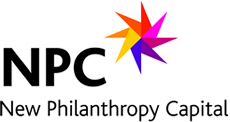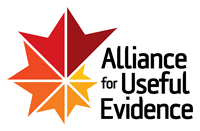Resources » Format » Case Studies
Case Studies
Case Studies
These case studies from Social Audit Network are intended to share experiences between organisations working in the social economy around their social impact reporting, and also to share with local authority commissioning and procurement staff to show them what can be achieved! The case studies are not just about social accounting and audit (SAA), but include where organisations have used SAA as a framework alongside social return on investment (SROI), cost benefit analysis (CBA), and other tools.
The Green Book is guidance for central government produced by HM Treasury on how publicly funded bodies should prepare and analyse proposed policies, programmes and projects to obtain the best public value and manage risks.
It also covers the evaluation of policies programmes and projects after they have been implemented to find out how well they have achieved their original objectives and how well they have delivered within their original budgets and planned timescales.
PHINEO analyses non-profit organisations in terms of their effectiveness and their projects’ potential to make a lasting impact.Their special analytical method takes all of the components of philanthropic work into account. They focus on organisation-related and project-related criteria geared toward the needs and expectations of social investors. Download an overview of their approach in Phineo: Doing Good - Achieving The Best.
This is a State of the Art Review of Big Data written by Duncan Ross for Nominet Trust. It is aimed at anyone who is interested in using Big Data and data science to improve society. Big Data can provide social organisations with opportunities to improve and reshape their services. It represents a combination of a series of trends: the rapid growth in data creation, the ability to store this data at a reasonable price, and the ability to apply sophisticated techniques to it in order to extract knowledge.
‘Exceeding Expectations’ is a report by Kevin Gulliver and Dawn Prentice from Human City institute (HCi) for Trident Social Investment Group on a comprehensive set of social accounts. The report tracks the community impact of Trident using a triangulated approach to evaluation of economic and social value based on HCI’s ‘Measuring-Up’ methodology. It shows how social landlords can measure their wider impact beyond the bottom line. More importantly, the report clearly illustrates how economic and social value can be measured and presented in a highly collaborative way with extensive involvement of stakeholders, including partners and residents. It also represents as case study of a major social landlord group that includes housing associations, charities and social enterprises. The results fed into the development of Trident’s Social Investment Strategy.
This paper from the UK Department of Health and Cabinet Office provides case studies of how five social enterprises have measured their social value. It presents the conclusions of an action research project to assist social enterprises and commissioners to understand better the wider impacts of service delivery and quantify the value in monetary terms.
This publication from CFG, NPC and ACEVO, is not a ‘how-to’ guide. The publication aims to bring the Principles of Good Impact Reporting to life through first-hand accounts and case studies from a range of charities and social enterprises that believe in the importance of demonstrating their impact. It offers some perspectives, tips and advice from stakeholders across the sector.
This resource is a French report from a consensus conference on homelessness in France.
In 2012, the National Offender Management Service (NOMS) commissioned NPC as part of a pioneering project to explore how providers can better measure the effectiveness of their work to rehabilitate offenders.
This report, by Benedict Rickey, Eibhlin Ni Ogain, Tris Lumley from NPC, draws on six charities that are at the forefront of impact measurement in the UK to show that impact measurement is both worthwhile and possible. These case studies and findings will be useful for those who are trying to make the case for impact measurement, those who want to set up or improve a measurement system and those who want to help charities measure their impact well.
To provide a model of IRIS adoption by impact investors, the KL Felicitas (KLF) Foundation and the Global Impact Investing Network jointly released this case study which explains KLF’s motivation for IRIS adoption and details the Foundation’s application of IRIS across its active investment portfolio.
This publication from Nina Mguni and Nicola Bacon at the Young Foundation presents three case studies of the Wellbeing and Resilience Measure (WARM). The report consists of three parts: Defining local wellbeing and resilience, Constructing the Wellbeing and Resilience Measure (WARM), Applying WARM in three case study local areas and Selecting indicators and creating the measurement framework.
This report from Bridges Ventures aims to contribute to the greater understanding within the investment community of the opportunities offered by Impact Investment and to promote the flourishing of further investments that can make a difference as well as making financial returns. The Impact Investment sector and case studies are mapped along the traditional asset classes, resulting in an Impact Investment Asset Allocation Framework (AAF). This Framework aims to combine the traditional asset classes with the specificities inherent in Impact Investment.
This report by John Pearce and Alan Kay for Social Audit Network (SAN) emerged from research whose main purpose has been to explore to what extent social accounting and audit has been used by social economy organisations in the North East of England, Cumbria, Merseyside and Scotland and to understand the perceived barriers to expanding its practice and how it may be made more “do-able” and more robust. The case studies were prepared by organisations that have engaged with social accounting and audit, and want to share their experiences with others.





